Search Results
Showing results 1 to 20 of 24
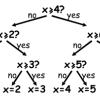
Twenty Guesses: Information Theory
Source Institutions
This activity introduces the idea that computer scientists measure information by how "surprising" a message is.

Color Draw
Source Institutions
In this activity, learners use their understanding of probability to guess which color will be drawn from a bag.
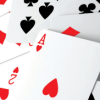
Odd Man Out
Source Institutions
In this math game (Page 14 of the Are You Game? PDF), learners determine the probability of getting an even versus an odd product using the numbers on a regular deck of cards.

Tossing Coins
Source Institutions
In this math game (Page 17 of the Are You Game? PDF), learners investigate probability by tossing coins.
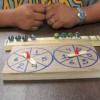
Games of Chance and Brains
Source Institutions
In this activity, learners build and play three math games. In the first game, called "Switcheroo," learners place marbles in holes 1 through 4 and 7 through 10.

The Great Toss Off!
Source Institutions
In this math game, learners toss plastic cups to land just right and collect points to win.

Marble Drop Game
Source Institutions
Build your own version of a favorite carnival game, in which a marble races down a maze consisting of rows of nails.
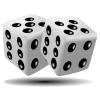
What's the Risk?
Source Institutions
To discover the risk and protective factors involved in substance addiction, learners play a game of chance to determine whether a fictitious child is likely or unlikely to abuse drugs.
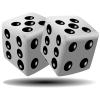
Probability: Remove One
Source Institutions
In this math lesson, learners are given 15 chips and a number line labeled from 2-12.

I Don't Think So!
Source Institutions
In this math activity, learners explore probability as they play a game. Learners will categorize everyday events as either impossible, possible or certain.
Take a Guess
Source Institutions
In this activity, learners use what they know about probability to figure out what is in a mystery bag. Learners analyze data to guess how many of each color crayons are in the bag.
Pattern Sticks
Source Institutions
In this activity, learners compete to be the first to win twenty counting pieces. First, learners draw patterns on only one side of four craft sticks.

Is it a Fair Game?
Source Institutions
In this math activity, learners play two versions of a card game and decide what makes a game fair. Learners also practice addition and subtraction skills.
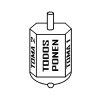
Toma Todo
Source Institutions
In this activity, learners play a traditional Mexican game of chance with a twist. Learners take turns spinning a special "Toma Todo" top.
Pom-Pom Probability
Source Institutions
In this math activity, learners predict how many pom-poms they can toss inside a circle from three feet away. Use this activity to help learners explore probability.
Odd or Even
Source Institutions
In this math activity, learners play a game and try to collect the most cards by guessing if the next number to appear will be odd or even.

Achi: A Strange Game of Tic Tac Toe
Source Institutions
In this game, learners strategize to be the first player to make three in a row.
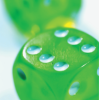
Race to the Top
Source Institutions
In this math game (Page 6 of the Are You Game? PDF), learners examine the probability of rolling sums from 0 to 12 with two dice. The first player to reach the finish line is the winner.
Pass or Roll!
Source Institutions
In this math activity, learners play a game in which every roll can earn you counters, but if you roll the wrong number (6), you have to put everything back.
Spin to Win!
Source Institutions
In this math activity, learners play a probability game and try to be the first to get to the end of the game board path .This activity guide contains a material list, black line masters for the game
